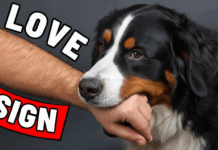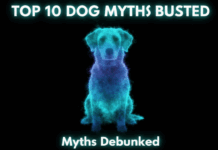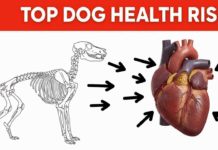Last Updated on July 16, 2021 by Dogs Vets
Do Dogs Suffer Depression? How To Help Your Sad Dog
Have you ever imagined your dog getting depressed? If not, how do you explain the gloomy behavior of your dog?
Like humans, some dogs suffer from spells of depression. It takes the intuitiveness of their owner to detect the mood change and act accordingly.
However, this is impossible if you aren’t sure if your little friend is depressed, hungry, or missing his pal.
If you are privileged to perceive the mood swing in your dog and relate it to depression, you would want to act. Here is where people get confused.
If it were a human, your options are plenty. However, with your dog, you may have limited options.
In this article, we have outlined the possible causes of canine depression and what to do when you notice the signs of depression in your dog.
Do dogs suffer from depression?
Like humans, dogs can suffer from depression. While this common condition isn’t often diagnosed in dogs, veterinarians, including behaviorists, want owners to keep a keen eye on their dogs to detect the signs of depression. With the right help and treatment, you can help your furry friend through a bout of low mood.
Having learned that a dog can actually suffer depression like humans, you may want to know more. I assume you may want to know the causes of depression in these pets.
They don’t have bills to pay, aren’t bullied, nor get cheated on by a loved one, so where is the depression coming from? What is the source?
If you have these questions on your mind, we have put together some of the causes of depression in dogs to enlighten you further.
Why do dogs suffer from depression?
As a dog owner, how do you fight an enemy you cannot see? The first step is recognizing the problem. Afterward, you should be able to devise a plan to solve the problem. Like humans, dogs get depressed due to several reasons.
Knowing these reasons will help you understand your dog’s situations and provide them with the best care they need to get better.
1. Physical illness:
As you suspected, physical illness is a major cause of depression in dogs. Dogs are cheerful animals. They wag their tail around you, wipe your cheek with their gluey tongue, and bark cheerfully when they perceive your presence after a long time away.
However, when illness hits, you don’t expect them to remain happy, especially if it’s a sickness associated with severe pain. An ill dog will be depressed; there are no two ways about it. And when you determine the cause of their depression, what do you do?
First off, you need to contact your veterinarian. It is essential that you discard a physical cause for your dog’s behavior before things escalate.
If your vet finds a solution, ensure you follow the treatment recommendations. Hopefully, your dog should be in good spirits after recovering from the illness.
2. Grieve:
Dogs can mourn. But they don’t mourn as we do. Normally when sad, we cry. Dogs, on the other hand, don’t produce tears when they mourn. Instead, they display pain and sadness vocally by yelping, howling, whining. Sometimes, they grief by exhibiting signs of depression.
But why do dogs grieve?
A dog can grief after the death of a loved one or an animal companion. Maybe a neighbor’s dog who he often plays with passed on. Or, maybe your last born, who was a close companion, moved to the boarding school. Since they aren’t humans, we may find it hard to explain this to your dog.
Losing a buddy, particularly an in-house buddy, can be a reason for your dog’s depression. We may not take note of this, but pets certainly grief.
3. Fear:
Forget the brave look dogs put up when they see a stranger. Or the way they bark when adrenaline kicks in. Dogs have fears. And when they get overwhelmed by their fears or phobia, you expect them to become depressed.
Of course, you don’t expect a dog to cringe or scream like a human would when scared. Some dogs wouldn’t want to showcase their fear. So they would retreat from normal activities to protect themselves.
Major causes of fear in dogs are thunderstorms, fireworks, gunshots, stairs, water, riding in cars, certain insects like butterflies, etc.
4. You (the owner):
When you have strong ties with an individual, you tend to observe that your mood mirrors the other person’s mood. For instance, if the parent of a child is in distress, you expect the child to show signs of distress. The same applies to your furry friends.
If you are feeling depressed, your dog might become depressed as well. In addition, if you are gone a lot, maybe on vacation to Dubai or on a business trip, your dog might get depressed.
But how do you notice these little signs of depression, especially one associated with your mood?
It’s quite simple.
For instance, if your dog doesn’t get excited ( as he ought to) when you fill his food bowl with delicious food for small animals, then it is a sign that something is up. Don’t take those small signs lightly.
5. No reason
In some cases, your dog may become depressed for no reason, the same way humans get depressed without a cause. This can be very frustrating for you as an owner. At this point, you just have to wait and hope that things get better.
What to do if your Dog is Depressed?
Gradual deterioration, seclusion, and weird behavior are definite clues that something is wrong with your dog. If you notice these signs in your dog, don’t ignore them, hoping that things will get better. Instead, take them to the vet for a checkup and possible diagnostics.
If the vet doesn’t think a physical illness is responsible for your dog’s change in attitude, consider making some changes at home.
Try to cheer your dog up by engaging him in fun activities, such as games, training, and fun tricks. In addition, you could try getting him his favorite meal, probably one of those food for small animals that you feel could lighten up his mood.
Aside from that, you can consider allowing your dog to play with other dogs or visit the doggy daycare. Social interaction could help lighten the mood of your pet.
Suppose your dog’s depression results from losing a companion; getting another dog is a good move. But, ensure that the timing is right, as things may get worse if your dog doesn’t accommodate the new dog.
Conclusion
Trying to help a depressed dog is key to its quality of life, happiness, and overall health. While there is a good chance that your dog might get over his depression after a short time, you mustn’t take chances.
If you notice signs of depression, act fast and don’t wait it out. Lastly, always remember that the best place to seek help is the vet clinic.
We hope you enjoyed this piece…What are your thoughts about do dogs suffer from depression? how to help your sad dog? Feel free to share with us in the comments section below.
Fact Check
We strive to provide the latest valuable information for pet lovers with accuracy and fairness. If you would like to add to this post or advertise with us, don’t hesitate to reach us. If you see something that doesn’t look right, contact us!























